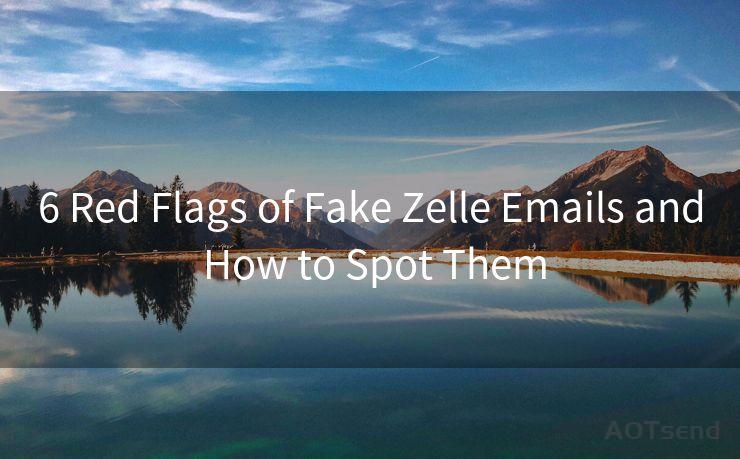6 Red Flags of Fake Zelle Emails and How to Spot Them




In the digital age, online payment platforms like Zelle have become increasingly popular for quick and convenient money transfers. However, with this popularity, scammers have also become active, sending fake Zelle emails to unsuspecting users. To protect yourself from these scams, it's essential to learn how to spot fake Zelle emails. Here are six red flags to help you identify these fraudulent messages.
1. Suspicious Sender Email Address
One of the first things to check in any email is the sender's address. Fake Zelle emails often come from email addresses that look similar to, but are not exactly, Zelle's official email. Always verify the sender's email address carefully. If it doesn't match Zelle's official domain, it's likely a scam.
2. Urgent or Threatening Tone
Scammers often use urgent or threating language in their emails to pressure recipients into taking immediate action. If an email claims that your account will be suspended or that you've won a prize but need to act fast, it's probably a scam. Zelle will never use such tactics in their official communications.
3. Requests for Sensitive Information
Zelle will never ask you to provide sensitive personal information, such as your password, PIN, or social security number, via email. If an email requests such information, it's a clear sign of a scam. Legitimate companies will never ask for sensitive details via unsecured channels like email.
4. Poor Grammar or Spelling Errors
Official communications from Zelle or any other reputable company are usually well-written and proofread. If an email contains numerous spelling errors or grammatical mistakes, it's a strong indication that it's not from Zelle. Scammers often operate in a hurry and may not take the time to proofread their messages.
🔔🔔🔔
【AOTsend Email API】:AOTsend is a Managed Email Service for sending transactional emails. Support Email Types: reminders, authentication, confirmations, notifications, verification codes, invoices, password resets, account activations, billing statements, two-factor authentication (2FA), and one-time passwords (OTP) emails, etc. $0.28 per 1000 Emails. 99% Delivery, 98% Inbox Rate.
You might be interested in:
Why did we start the AOTsend project, Brand Story?
What is a Managed Email API, How it Works?
Best 25+ Email Marketing Platforms (Authority,Keywords&Traffic Comparison)
Best 24+ Email Marketing Service (Price, Pros&Cons Comparison)
Email APIs vs SMTP: How they Works, Any Difference?
5. Suspicious Links or Attachments
Fake emails often contain links or attachments that lead to malicious websites or software. Hover over any links in the email to check the URL before clicking. If the domain doesn't match Zelle's official website, avoid clicking on it. Similarly, be cautious of attachments, as they may contain malware.
6. Unusual Requests for Money Transfers
If an email asks you to make an unusual money transfer, especially to an unknown account, it's probably a scam. Zelle will never ask you to transfer money to a third-party account for any reason. Always verify the authenticity of any such requests before taking action.
By keeping these six red flags in mind, you can easily spot fake Zelle emails and protect yourself from potential scams. Remember, it's always better to err on the side of caution when dealing with financial transactions online. If you're unsure about an email's authenticity, contact Zelle's customer support directly for clarification. Stay vigilant and stay safe!





Scan the QR code to access on your mobile device.
Copyright notice: This article is published by AotSend. Reproduction requires attribution.
Article Link:https://www.mailwot.com/p4171.html



